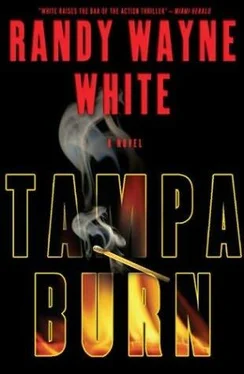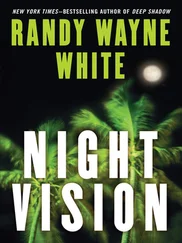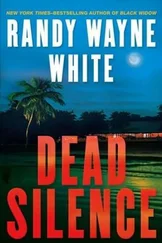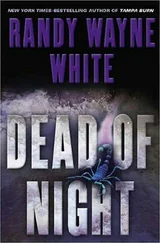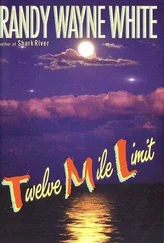Randy White - Tampa Burn
Здесь есть возможность читать онлайн «Randy White - Tampa Burn» весь текст электронной книги совершенно бесплатно (целиком полную версию без сокращений). В некоторых случаях можно слушать аудио, скачать через торрент в формате fb2 и присутствует краткое содержание. Жанр: Триллер, на английском языке. Описание произведения, (предисловие) а так же отзывы посетителей доступны на портале библиотеки ЛибКат.
- Название:Tampa Burn
- Автор:
- Жанр:
- Год:неизвестен
- ISBN:нет данных
- Рейтинг книги:4 / 5. Голосов: 1
-
Избранное:Добавить в избранное
- Отзывы:
-
Ваша оценка:
- 80
- 1
- 2
- 3
- 4
- 5
Tampa Burn: краткое содержание, описание и аннотация
Предлагаем к чтению аннотацию, описание, краткое содержание или предисловие (зависит от того, что написал сам автор книги «Tampa Burn»). Если вы не нашли необходимую информацию о книге — напишите в комментариях, мы постараемся отыскать её.
Tampa Burn — читать онлайн бесплатно полную книгу (весь текст) целиком
Ниже представлен текст книги, разбитый по страницам. Система сохранения места последней прочитанной страницы, позволяет с удобством читать онлайн бесплатно книгу «Tampa Burn», без необходимости каждый раз заново искать на чём Вы остановились. Поставьте закладку, и сможете в любой момент перейти на страницу, на которой закончили чтение.
Интервал:
Закладка:
As we resumed walking back to Dinkin’s Bay Marina, he continued to tell me things about the woman I thought I knew but, as I would discover, I didn’t know at all.
Years ago, he said, in Central America, while I’d lain unconscious, they’d taken a break together, smoked a joint, and she’d tried to seduce him-unsuccessfully.
“I didn’t even know you that well back then,” he said, “but I had this gut feeling you and I were going to be hermanos. It’s one of the few times Zamboni and the Hat Trick Twins didn’t win that particular sort of face-off. A buddy’s girlfriend is a line I’ve never crossed.”
Two nights ago, in Miami, she’d tried to seduce him again-which is why he’d insisted that they return to Sanibel. It’s also why he’d stayed aboard his boat most of the day, fretting over whether he should tell me or not.
Tomlinson’s a flake, but he’s a brilliant flake, with Ph. D. s in philosophy and sociology, and he keeps up on the professional literature. Judging from Pilar’s behavior, he said, she was driven by a disorder that he called “acute bipolar mania,” which is the severest form of what was once called manic depression.
“They don’t love anyone,” he said. “They’re not capable of the emotion. They only play roles that advance their own delusions.”
Pilar? Could it be true?
I questioned him in detail. Most of the questions were clinical. What symptomatic behavior had he observed? Could he name specific things she’d said and done?
Yes-he could. And did.
I have no training-and little interest-in his field. Yet, listening to him, I realized that I’d observed many of the symptoms myself, but hadn’t recognized them for what they were.
In hindsight, Pilar’s conduct had been disturbing at times. I remembered sudden rages quickly masked if strangers appeared. I remembered overhearing her cooing to herself as a baby might talk when she didn’t know I was listening. I remembered making a joke of the fact that, after four years, she still didn’t know my birthday. I remembered her telling me things that I knew were untrue, and that I thought were her intentional exaggerations.
“That’s part of the sickness,” Tomlinson said. “They may lie intentionally if it suits their needs, or their delusion can bend the truth any way necessary to advance their own cause. Either way, the lie becomes real to them.”
Odd references in Lake’s e-mails also now made sense to me. At least twice he’d mentioned that he was worried about his mother, and that he was trying to get her to “talk to someone.”
When I’d inquired about what, he hadn’t responded.
Ultimately, I was convinced that what Tomlinson was saying about Pilar was valid. It was a startling revelation that left me, for those few minutes at least, emotionally numbed.
He further surprised me by adding, “My personal opinion about you and Pilar has always been that you never really loved her, Doc. You maybe believed you loved her, but that’s because she was safe. There was no chance you would have to marry her, or that she’d show up one day at the lab with all her luggage asking to move in. She lived in a different country, had her own life. You rarely saw her or spoke with her, so you could use her as a sort of mirror to project your own female ideal.”
When I said, “You’re describing a guy who’s not only selfish and shallow, but emotionally blocked,” Tomlinson replied, “Well, pal, for all our good qualities, we both live alone for a reason, don’t we?”
Smiling, I told him I’d have to think about that. But, yeah, it was possibly true.
As we neared Tarpon Bay Road and the mangrove lane that leads to my lab and to the marina, he insisted on returning to the subject of the San Diego bombing, to the guilt he felt, and to his moral obligation to turn himself in to authorities.
I reminded him, “You said that you were a different person before you were institutionalized. When pathology is involved, a person’s behavior can’t be judged as either moral or immoral. Sickness is a form of disability. Like Pilar-you said she wasn’t an evil person, just bad. So stop blaming yourself. Leave it in the past where it belongs. My friend Johnny’s long dead, and his wife Cheryl’s happily remarried. So just leave it be.”
Sounding harried, confused, Tomlinson said, “I don’t know, Doc. I don’t know. Do you really believe that? Do you believe that moral responsibility can be mitigated? I don’t think I buy it. Spiritually, man, I don’t think I can allow myself to go on as if nothing happened. I took a human life! I think I have an obligation to let the legal system decide how I should be punished.”
When I put my arm over his shoulder, pulled him to me roughly, and said in a joking tone, “Let’s put it this way: If you try to turn yourself in to law enforcement, I won’t kill you, but I may try to slap a little sense into you,” my friend Tomlinson’s knees buckled for a moment, and he began to sob.
He’d reacted the same way not so long ago, the afternoon I’d given him papers that exonerated him from the crime he now knew that he’d committed.
RUNNING my boat fast across Hillsborough Bay now, Tampa behind me and the St. Pete skyline now off to my right, it was painful to think about Tomlinson. Painful to think that he seemed determined to carry out what he saw as a spiritual obligation to confess to that long-ago murder.
What a loss that would be to the marina. What a loss to everyone who knew the man-particularly to his best friend.
Oddly, though, about Pilar Fuentes, I now felt no sense of loss whatsoever. To have her perplexing behavior explained so rationally had, in the instant of my understanding it, purged me of all emotional sensations attached to her.
The woman I thought I knew did not exist. She was a fiction. Therefore, my history with her was also an illusion, and so no sensation of regret, or joy, or bitterness could be assigned.
It was the weirdest feeling. One moment, the Pilar I thought I’d cared for had existed in memory. The next moment, she’d been vaporized by the truth.
“She loves no one,” Tomlinson had said.
It was the saddest of phrases, but also freeing. In that instant, she disappeared from my past. In that way, at least, I could relate to Tomlinson. It was a little like having a block of memory wiped clean.
Dewey was still there with me, though. Thoughts of her remained, along with the deep, deep regret I now felt that I hadn’t recognized the truth about Pilar before I spoke the idiotic words that Dewey had overheard.
Off to my left were spoil islands, and the rectangular green mountain of phosphate spoil that marked Gibsonton. I slowed to 40 mph and cut in close to an island furred with pine and a few scraggly cabbage palms, before slowing to idle near a section of white beach that looked like it might have a creek near shore.
I checked my watch: 7:25 P.M. on a Friday, early May.
A little more than a half an hour before sunset.
So should I run up Bullfrog Creek, get closer to the trailer park, and risk meeting Prax Lourdes coming out? Or should I assume he was already sitting somewhere near the Sunshine Skyway, waiting for me to arrive by car?
Meeting him, I decided, might not be such a bad thing.
I pushed the throttle forward, jumping my skiff onto plane, and headed for the creek.
THIRTY
Dr. Valerie Maria Santos remembered very little of what had happened late Thursday night, the night that she’d been abducted. The details failed to imprint on her brain because the perpetrator had nearly killed her accidentally, he was so freakishly strong, plus he knew almost nothing about administering ether as an anesthetic.
Dr. Valerie remembered being in Operating Room II-her favorite-and that she’d told the techs to play opera, loud.
Читать дальшеИнтервал:
Закладка:
Похожие книги на «Tampa Burn»
Представляем Вашему вниманию похожие книги на «Tampa Burn» списком для выбора. Мы отобрали схожую по названию и смыслу литературу в надежде предоставить читателям больше вариантов отыскать новые, интересные, ещё непрочитанные произведения.
Обсуждение, отзывы о книге «Tampa Burn» и просто собственные мнения читателей. Оставьте ваши комментарии, напишите, что Вы думаете о произведении, его смысле или главных героях. Укажите что конкретно понравилось, а что нет, и почему Вы так считаете.
